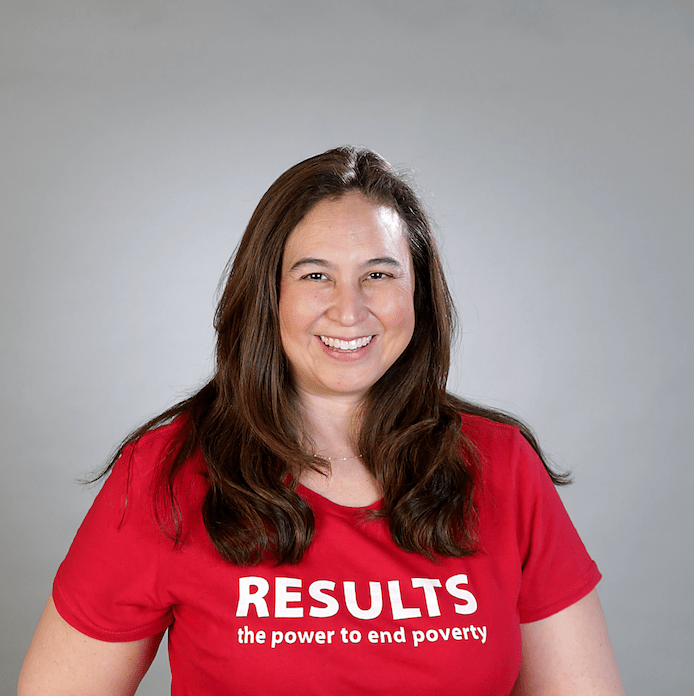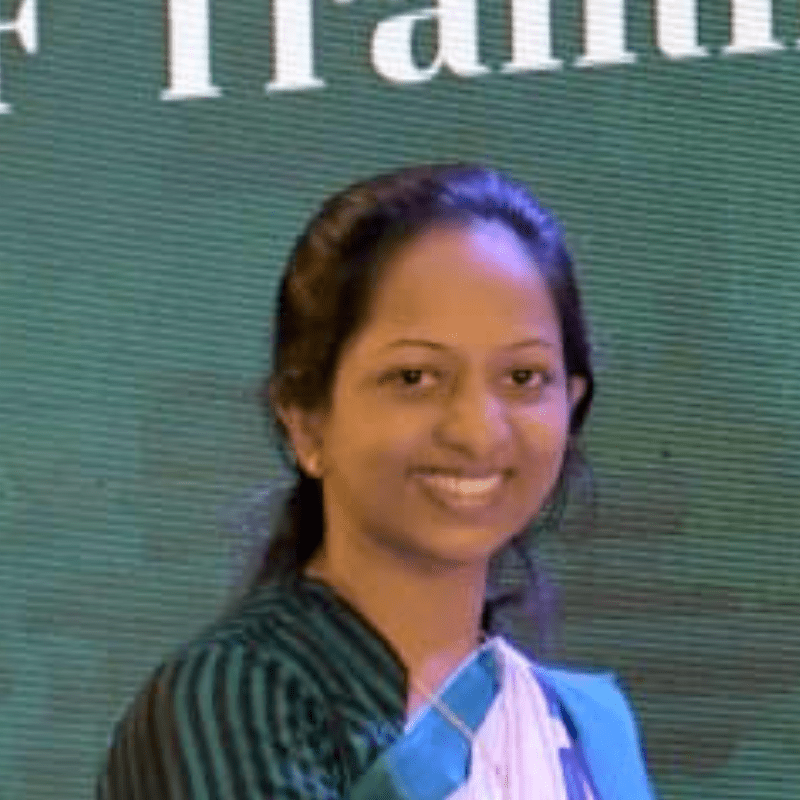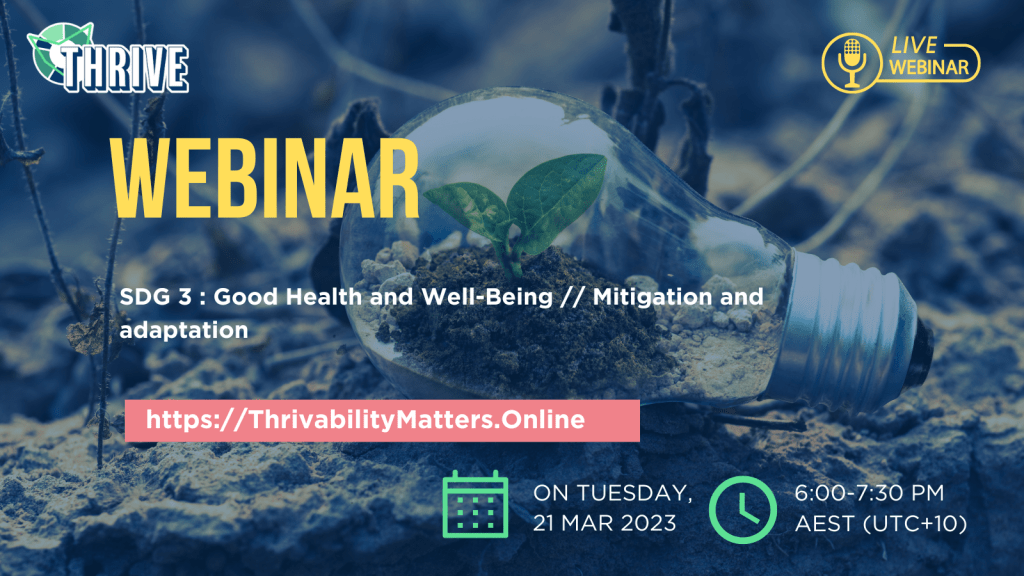The THRIVE project would like to extend our warmest gratitude to Cynthia Levin and Sonia Chinnaiyah for their guest presentations at our February Thrivability Matters Webinar. The theme of this webinar was the United Nations Sustainable Development Goals, (SDG4, SDG8 & SDG12) (Quality Education, Decent Work, Economic Growth and Responsible Consumption & Production).
About Our Speakers

Cynthia Changyit Levin is an author, coach, keynote speaker, and a rare breed of non-partisan activist. Cynthia served as a board member for RESULTS and the RESULTS Educational Fund, leading volunteer groups in Chicago and St Louis for over ten years. She volunteers with RESULTS, the ONE campaign, Bread for the World, CARE, Moms Demand Action for Gun Sense in America, Moms Rising, and the United Nations Foundation’s Shot@Life Campaign. In 2021, she was awarded the Cameron Duncan Media Award from RESULTS Educational Fund for her activism in written media.

Sonia Chinnaiyah Thayakaran is an HR Gold medallist & Freelance Senior HR Consultant. She assists Corporate Leaders by establishing a powerful and unique Career Brand. She received the Gold Medal for the ‘Most Outstanding HRM Graduate of the year – 2009’, awarded by the University of Colombo, Sri Lanka.
Summary Of the Webinar
The THRIVE Project – an organisation that directs humankind on the path toward a more sustainable future – was fortunate to have these two speakers as guest presenters for its monthly Webinar.
Cynthia Levin on ‘Citizen Advocacy for Global Education‘
Cynthia shared her beliefs and experiences surrounding advocacy with an American lens. She highlighted the various channels available to residents for engaging with members of Congress, including letters, emails, town hall meetings, and personal meetings. She emphasised the importance of giving voice to every identity, recognising that each perspective is unique and valuable. Cynthia further noted that education is crucial on a global scale, as it can lead to increased future wages, economic growth, and fundamental human rights.
Cynthia went on to discuss how advocacy has been put into practice through invitations to participate in the “Global Partnership for Education,” which was attended by members of Congress, including media figures. She cited the positive impact of the nationwide advocacy group “RESULTS”. The group has secured pledges of support for the Global Partnership for Education, in efforts to provide quality education for disadvantaged children. Cynthia stresses that the key objectives of RESULTS are to improve educational opportunities, particularly for girls, and to strengthen educational systems to promote long-term sustainability.
Sonia Chinnaiyah on ‘Why Employing Persons with Disabilities Matter to Fulfill SDG 8’
Sonia began by discussing the focus of SDG8, which highlights the importance of development through promoting inclusivity and employment for all, including those with disabilities. She cites estimates from the World Health Organisation in 2011 that suggest approximately 15% of the global population lives with some form of disability, a number that is expected to increase due to aging populations and chronic diseases.
Sonia then went on to highlight the potential of individuals with disabilities as an untapped source of talent. Research indicates that individuals with disabilities often perform as well as or even better than their neurotypical, able-bodied peers. She explained that this may be due to the theory that when one part of the body is impaired, other parts compensate and become more efficient. For example, a person with a physical disability may develop exceptional auditory skills, such as recognising a caller only based on their voice. Employing individuals with disabilities also contributes to workplace diversity and inclusivity.
Despite global efforts to ensure the rights of individuals with disabilities, studies and reports suggest that many are still excluded from formal employment due to discriminatory practices and a lack of disability-friendly human resources. This denies them equal access to job opportunities and the necessary support services. To remedy this, Sonia suggests that employers adopt disability-friendly practices and evaluate job performance based on ability, not disability. This approach would not only increase employment opportunities for individuals with disabilities but also promote economic growth.
CONCLUSION
In conclusion, Cynthia and Sonia’s discussions highlight the importance of advocacy and inclusion in promoting education and employment opportunities for disadvantaged groups. Their insights shed light on the positive impact of organisations like RESULTS in securing support for global education initiatives and the untapped potential of individuals as a source of talent in the workforce. However, their analysis also highlights the persistent issue of discrimination and lack of inclusivity that continues to hinder progress in achieving these goals. As a society, it is our responsibility to take action to address these issues, whether it be through supporting advocacy organisations, adopting disability-friendly practices in the workplace, or promoting diversity and inclusivity in all aspects of society. By doing so, we can not only improve the lives of disadvantaged individuals but also promote sustainable and inclusive economic growth for all.
If you missed the presentations or the live Q&A session, you can view the recording on our YouTube channel.
Register for our March webinar on SDG3 – Good Health and Well-Being.
Thanks, and do keep on thriving!
SUBSCRIBE TO OUR NEWSLETTER
GOT A QUESTION ABOUT THIS TOPIC?
Ask an Expert
COMING UP NEXT MONTH

Next month, we’re focusing on SDG3 – Good Health and Well-Being, both increasingly relevant topics. The targets under SDG3 aim to reduce maternal and child mortality, end epidemics such as HIV/AIDS and malaria, reduce the burden of non-communicable diseases, strengthen the capacity of health systems, and promote mental health and well-being, among other objectives. Achieving the targets under SDG3 requires action from all sectors and stakeholders, including governments, healthcare providers, civil society, and individuals. Follow us on social media channels and subscribe to our newsletters for further updates on the next month’s content. Register now and save the date!
JOIN OUR UPCOMING WEBINAR